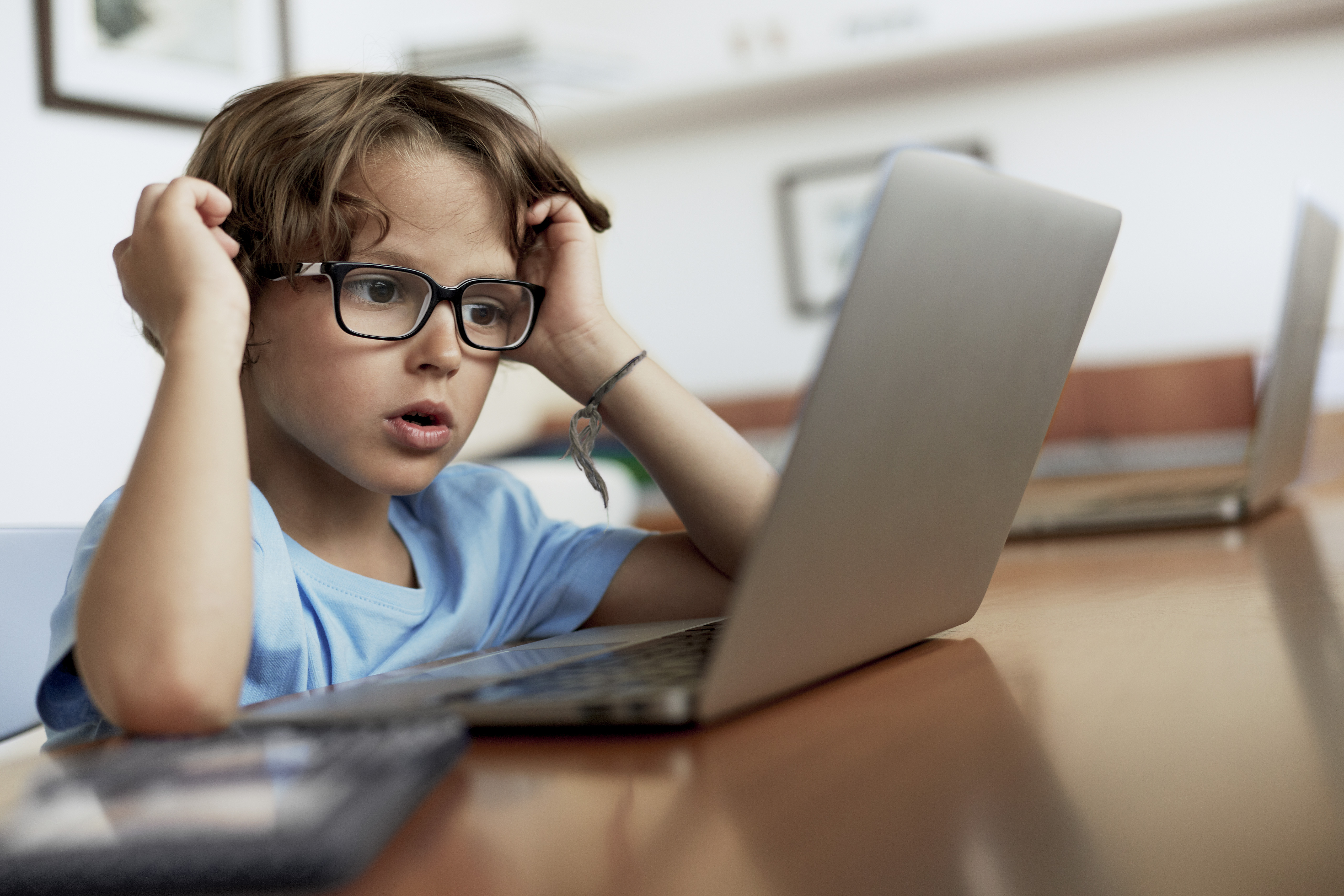You may have read about a study published by the University of Hong Kong linking COVID-19 restrictions, screen time and myopia in children.
The Guardian reported that spending more time indoors and on screens because of Covid restrictions may be linked to an increased rate of short-sightedness in children. The study, which looked at two groups of children aged six to eight in Hong Kong, was the latest to suggest that lockdowns and other restrictions may have taken a toll on eyesight: data from more than 120,000 children of a similar age in China, published earlier this year, suggesting a threefold increase in the prevalence of shortsightedness, or myopia, in 2020.
Dr Jason Yam of the Chinese University of Hong Kong, a co-author of the new study, said “near work” – such as reading, writing or watching TV – is believed to be a risk factor for myopia, while increased outdoor time has been consistently shown to have a protective role. However, Covid restrictions had kept many indoors. “In Hong Kong, schools were closed for months, and even recreational facilities such as playgrounds, sports grounds, and even outdoor campsites and country parks were shut,” Yam said. Small living spaces and a paucity of private outdoor spaces meant many families had no choice but to stay home or stay indoors. “Naturally, more time was spent on reading, watching television, or using computers, smartphones, or other digital devices,” he added.
Writing in the British Journal of Ophthalmology, the team described how they enrolled two groups of children in 2015 and 2020. The first group were followed up after three years, the latter after eight months. After taking into account the follow-up duration of each cohort, the team found an estimated annual incidence of myopia of almost 30% in the Covid-era group, compared with just under 12% in the pre-Covid era group, suggesting a 2.5-fold increase in myopia incidence during the pandemic. The study revealed dramatic changes in outdoor time between recruitment and follow-up of the Covid-era group, falling from about 75 minutes a day to 24 after Covid restrictions were introduced. Over the same period, the children’s time on near work, including use of screens, rose from just under 3.5 hours a day to about 8 hours per day.
While it is not clear whether the results would hold for children in the UK, not least because levels of myopia are known to be particularly high in industrialised areas of East Asia, Yam said the nationwide stay-at-home mandates in the UK, and likely increases in near work or screen time, means they could be similar. James Wolffsohn, professor of optometry at Aston University, who was not involved in the research, told the Guardian that at least nine studies have so far had identified an increase in myopia progression during the pandemic, with one suggesting this was partially reversed after lockdown.
College of Optometrists Clinical Adviser, Dr Paramdeep Bilkhu MCOptom, further explains:
“There has been a general worldwide trend of increasing prevalence of myopia, and this study shows the importance of getting outdoors – not only is it good for general health, but it is shown to help reduce the onset of myopia and potentially the degree or rate of myopia progression.
“While there is no evidence to suggest screens will cause any damage to the eyes, prolonged near activities like using a screen or laptop can cause the eyes to feel uncomfortable and tired. Like any muscle in the body, eye muscles that control eye movement and fine tune focus will become fatigued.
“We recommend that everyone ensures their screens are optimally positioned and take regular breaks. A useful reminder is the 20/20/20 rule, where we advise you look away in the distance (around 20 feet) every 20 minutes for 20 seconds, and blink regularly to keep the eyes comfortable.
“With respect to myopia, there are currently no published reports that replicate the findings of the study in relation to lockdown measures the UK, but it is recognized that staying indoors, rather than any specific near activity such as using a screen, may contribute toward myopia development.”
Dr Paramdeep Bilkhu MCOptom, Clinical Adviser, College of Optometrists.
Mackey Opticians recommends that all children should have a regular eye examination throughout their school career whether they report any problems or not - eye exminations are free of charge to children and students under 19 years of age. We can also give more advice about the causes of myopia and "myopia-management" using advice like above and new treatment options with speciality contact lenses and spectacle lenses like MiYOSMART. Why not book an appointment today.
Stay Up To Date With The Latest News
Be informed about our exclusive sales and top deals.
